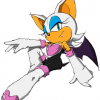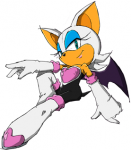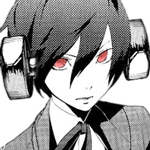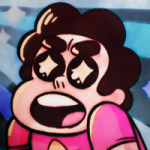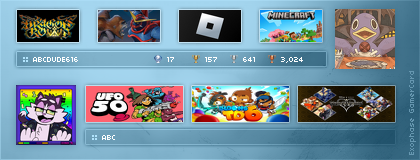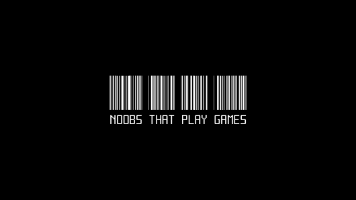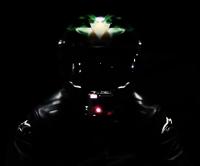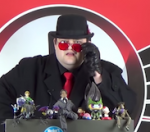Nintendo’s new system has lost one of its best exclusives. And no one is surprised.
So Rayman Legends is no longer exclusive to Wii U. One of the games that best showcased Wii U’s many unique attributes, and outdid Nintendo's own New Super Mario Bros. U, will now come to other home consoles.
What’s most concerning about this situation is that it isn’t surprising. Nintendo has had trouble communicating the appeal of its home console. The publisher knows this. It admits the intricacies of asymmetric play, the allure of portable play at home, or the appeal of having a built-in social network, don’t make themselves immediately apparent to those considering a purchase. Sales, though admittedly in a similar spot as Wii in early 2007, have still been disappointing. And an almost empty Q1 2013 has left Wii U as an afterthought in the minds of many consumers. Nintendo has lowered its sales estimates for its fiscal year that ends in March, predicting that it will sell 4 million Wii U systems, a full 1 million units less than anticipated. And, importantly, that means that Nintendo believes it will only sell 940,000 consoles globally in the next three months. As of the end of 2012, Wii U had been averaging sales of 612,000 units globally per week.
The drastic decrease in software isn’t unusual for recently-launched consoles. Wii U isn’t the first to experience rough patches in its earliest months – or complete software lulls. It happened to the Xbox 360. The same awkward opening plagued the PlayStation 3. And in that sense, it’s hard to blame Ubisoft for making the right business choice – Wii U has sold about 3 million systems around the world. The 360 and PS3 have a combined install base of at least 146 million units (according to recent sales estimates). The choice is clear, and if anything it’s a wonder Ubisoft was willing to even contemplate so many Wii U exclusives in the first place.
Of course the question now is – can Wii U appeal to consumers if it can’t keep a hold of third party games? Nintendo can’t do everything on its own. Its biggest projects, Pikmin aside, are still several months away. Mario, Mario Kart, Wind Waker and Smash Bros. certainly seem nice in a theoretical sense, but they are destined for release at least a half a year from now. That lack of key blockbusters in turn won’t push system sales, and without system sales, third party content that might make its way to the system will be less likely.
Let the naysayers run and sound the bells of doom! The apocalypse is clearly upon Nintendo!
… Right?
In the short term, things won’t be all that great – for game releases or for Nintendo's image. The company’s financial state won’t magically improve in the next several months. Several major third party titles (Bioshock Infinite, Tomb Raider and more) will arrive in stores – and none of them will be on Wii U. Next-gen buzz will fire up in a major way in just a few weeks, and it likely won’t subside in the slightest until E3 2013 is long gone – if it fades at all. Wii U, in some respects, will likely struggle to be a part of the conversation. And while Nintendo’s revealed slate of Lego City Undercover, Pikmin 3, Wonderful 101 and more will likely all be compelling, strong content, none of them have left the impression of being system sellers. That’s not meant as a slight against those games – it’s just the reality of what Nintendo has prepared. Plus three to four great games spread across what realistically might be a six-to-seven month stretch is not the best future to imagine. But that appears to be what is in store.
Some of this short term struggle seems like it could have been avoidable. A thriving Virtual Console, particularly had Nintendo made a logical move and added GameCube support, might have offset some of the software gaps that seem poised to continue. HD re-releases of Wii games could have helped. Some Wii U owners might not have played Skyward Sword by the time it released, and no doubt millions would consider buying Mario Galaxy once more in high definition. These wouldn't replacements for AAA games, of course. They'd be stopgaps. But they would help buy time until Nintendo's teams had fully learned the hardware to ready blockbuster content. 3DS owners are used to digging up eShop and Virtual Console gems when core, ‘retail’ content remains on the horizon. 3DS owners also had several key DS games release in those first couple years. Wii U doesn't really have an equivalent luxury.
One exclusive going multiplatform isn’t the end of the world for any console, new or old. Rayman Legends is still coming to Wii U. It will still be a great showcase for the system, and it will likely be just as great as we expect, complete with unique features. However, the problem is that Ubisoft’s announcement confirms something we’ve suspected for a while – third parties currently don’t find Wii U an enticing prospect. Not on its own. And that is a problem, because a unique system must be able to be a wholly unique experience. In the future, when Sony and Microsoft are wielding their powerful new hardware, Nintendo must be able to highlight ideas that aren’t available elsewhere. It needs to have an answer for whatever key franchises come to the next Xbox and PlayStation that just aren't technically feasible on Nintendo's less powerful platform. Wii U must stand alone, if for no other reason than its hardware won’t likely allow for apples-to-apples ports, which will only discourage projects already headed to Sony and Microsoft.
In the long term, Nintendo will forge ahead as it always has. It will expand its teams with its powerful cash reserves. It will shoulder more of the burden. And one doesn’t have to look far in order to see a case where the publisher, through sheer determination and shrewd, Machiavellian business moves, made a struggling platform work. The Nintendo 3DS was facing a similarly empty future, with little third party in sight and a first-party schedule that was still sitting at the onramp. Nintendo made things work, taking massive losses to do so. Despite the PlayStation Vita. Despite Apple’s iOS ecosystem changing the world of portable gaming. And while the 3DS will likely never surge to the levels of the DS, it has started to perform reasonably well, and has a remarkably strong 2013 ahead of it.
Nintendo must set that example once again, by aggressively, rapidly taking some steps to fill the immense gap between now and the exciting (but distant) horizon where Smash Bros. and Monolithsoft's 'X' wait for us. Third parties aren't just going to show up with open arms. Nintendo must drive sales. It must create the environment to turn its own fortunes around. Some signs are evident, if not imminent. The partnerships with Namco Bandai, Platinum Games, Atlus and, yes, even Ubisoft are significantly understated. That Nintendo is reaching out for alliances and publishing deals and preaching the message of its system to those that will listen is critical. And Nintendo’s own management has signaled that what we have seen is just the beginning. If key Nintendo franchises can not only be developed externally but partnered with like-minded franchises for new experiences, Wii U will find its path. If Nintendo can find developers like Platinum Games, who have ideas that gamers love, but other publishers don’t, Wii U will recover its footing. If Nintendo can ensure that its console is not only home to great AAA games, but a huge, eclectic range of digital-only games and services, Wii U will remain competitive.
But that’s a lot of uncertainty for consumers to deal with when weighing a purchase. And, although Rayman Legends is just one game, its move to a multiplatform release signals that publishers are also wrestling with that uncertainty.
It’s going to be up to Nintendo to continue reassure this industry that Wii U has a place in it. E3 2013 is still over 100 days away, but that just might be when we find out.
-.-'
Source
Edited by Big Bowsy, 07 February 2013 - 12:09 PM.



